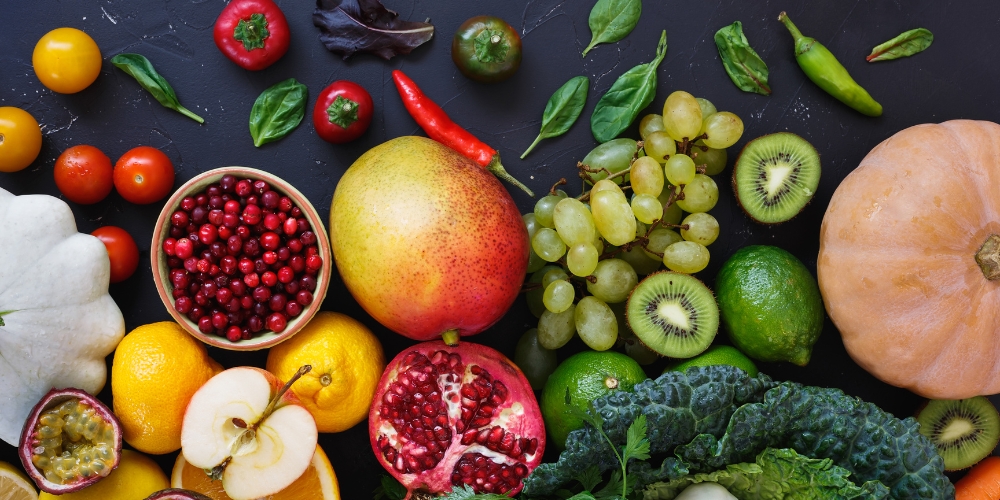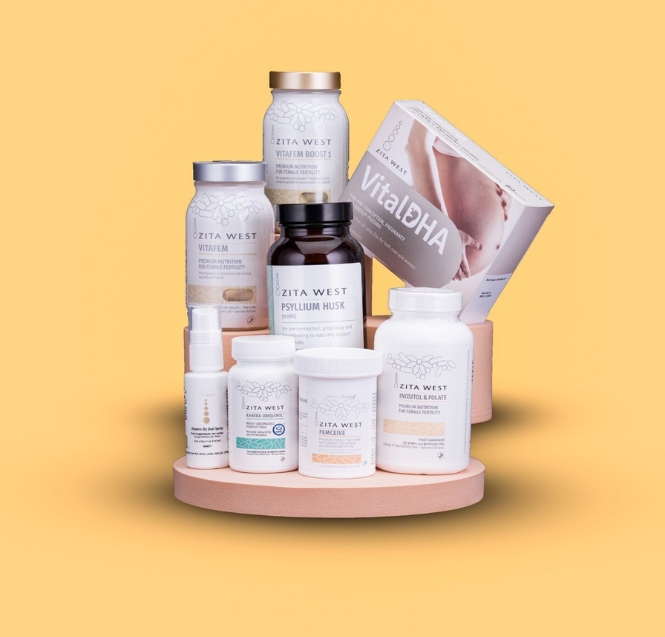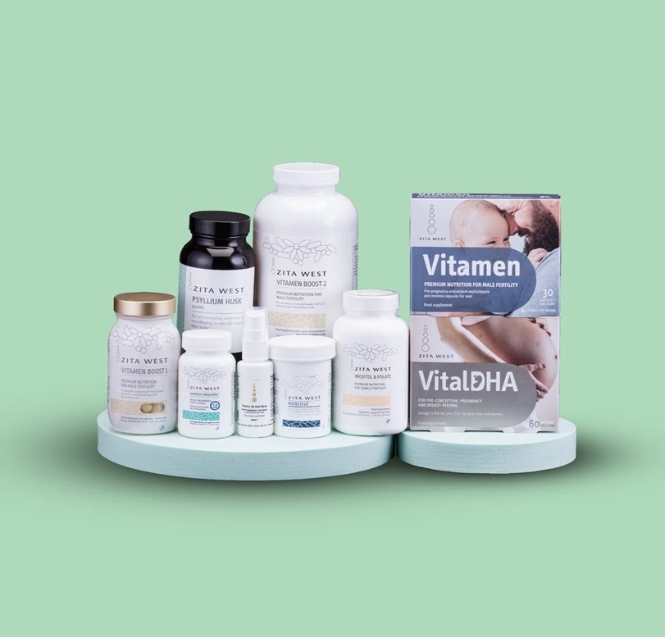Your Ultimate Guide to Improving Egg and Sperm Quality

How can I improve the quality of my eggs and sperm?
Our TRB community frequently asks us how to improve egg and sperm quality to boost the chances of natural conception and outcomes of IVF.
For anyone trying to conceive naturally or having fertility treatment, knowing we’re doing what we can to improve the quality of our eggs or sperm and increase the chances of conception can be comforting.
So, with our trusted partners at Zita West, we’ve collated expert nutrition tips on improving egg and sperm quality to get pregnant. This is simply a guide; speak with your fertility nutritionist about creating a personalised nutrition plan when you’re TTC or having fertility treatment and don’t be too hard on yourself if you don’t follow all the advice all of the time.
Zita West Products is a complete collection of specialist preconception, conception and pregnancy supplements for men and women. These premium fertility supplements contain all the essential nutrients you need when TTC (view the Zita West Products partner profile here and visit the website here.)
Zita is offering TRB readers an exclusive discount across her entire range of fertility supplements, including the Ultimate Female and Male IVF Kits. Read on for the code and to find out how to boost sperm and egg quality through nutrition, when trying to conceive.
Laying the foundations for healthy eggs and sperm can increase your chances of conception and healthy pregnancy. The most important thing you can do to improve egg and sperm quality is to ensure your body is fuelled by good nutrition at least three months before starting to try for a baby.
Preparing for conception
A woman is born with all the eggs she will ever have and although her age significantly impacts the quality of her eggs, having a healthy lifestyle and nutrition can reduce further damage.
For an egg to mature within its ovarian follicle, it takes approximately 150 days – giving about a four-month window to ensure that the egg is as well-nourished as possible. Once released, the egg lives up to 24 hours so it needs to be as healthy as it can be to optimise chances of fertilisation.
Lifestyle factors such as smoking, excessive drinking and obesity can harm fertility and chances of conception so limiting exposure to dangerous toxins and taking moderate exercise are important steps in boosting egg quality.
Beyond having a healthy lifestyle, optimising your nutrition is an effective way to improve egg quality and prepare the body for pregnancy. Following a diet that is high in protein and low in carbohydrates will help you to ingest these important nutrients when you’re trying to conceive and a Mediterranean-style diet is widely recommended for fertility. An additional benefit of the Mediterranean diet is that its anti-inflammatory as inflammation can limit the success of embryo implantation.
Once you’ve started fertility treatment, you can prepare for natural or assisted embryo implantation by ensuring the uterine lining has all the essential nutrients to support implantation. A diet rich in vitamins D and E, selenium, magnesium, omega 3 and beta carotene will support a balanced immune function and therefore healthy development of the uterine lining.
Benefit from 10% off the Zita West fertility supplements ranges by using code TRB10* here.

A female fertility-friendly diet should incorporate:
- B vitamins including folate (found in green, leafy vegetables)
- Vitamin E: avocados, walnuts, almonds
- Magnesium: found in nuts and seeds, whole grains, pulses, green leafy vegetables
- Selenium: found in Brazil nuts
- Protein from fish, meat and vegetables
You might have heard that pomegranate juice supports fertility and conception but did you know this is because pomegranate juice improves blood flow around the body, allowing nutrients to reach reproductive areas more readily? Other foods that ease blood flow include beetroot juice and watermelon, so incorporate these into your diet, too.
Don’t worry too much about not liking certain types of food. Working with a fertility nutritionist can help you discover foods that not only support your fertility and IVF success but that are also delicious. When TTC and having fertility treatment, try to limit your intake of trans fats, refined sugars and excess additives as these can disrupt the hormonal balance within your body. If you have a sweet tooth and slip up from time to time, that’s okay; IVF can be stressful enough without you berating yourself because you ate that pack of chocolate buttons.
Read more of Zita’s advice on improving nutrition for conception.
Following a varied diet is important when TTC but you can plug gaps in your diet by taking a high-quality fertility supplement. Taking a wide-ranging multivitamin, an antioxidant formula and building your stores of DHA and Omega 3 will help prepare your body for IVF.
So what to look for in a fertility supplement for women?
A high-quality female fertility supplement should include at least 100 per cent of the recommended amount of all the main vitamins and minerals, as well as antioxidants (such as vitamins C and E), selenium, iron and zinc. B vitamins and zinc are essential for cell division following fertilisation and DHA is also vital for women TTC because it supports the development of the foetus’ cell membrane. CoQ10 supports enzymes in producing energy for the body and is needed for the reproductive system.
Zita says, “I recommend that both partners supplement with a quality multivitamin and mineral formula… I also recommend daily supplements of Omega-3 fats, vitamin D and folate.”
In the northern hemisphere, we are often lacking in vitamin D, so if (and when!) you can, try to get at least 10-15 minutes of sunshine on your skin each day. Yet even despite this, you may still be vitamin D deficient so ask if your fertility specialist can check your vitamin D levels and have your fertility nutritionist advise on whether you should also take a vitamin D spray, and what strength they recommend.
The Ultimate Female IVF Kit contains everything expert nutritionist Zita West recommends for women going through IVF. Each kit has a month’s supply of essential fertility supplements and a vitamin D oral spray that will last you three months.

How can men prepare their bodies for conception?
Unlike women, men are producing sperm 24 hours a day, 7 days a week and so diet plays an important role in men’s sperm health. The food a man eats can influence his sperm count, morphology, motility and DNA structure.
As an expert in fertility nutrition, Zita West recommends men include these foods in their diet for optimal sperm health:
- Protein – rich in amino acids to build sperm
- Oily fish, nuts and seeds – sperm production also needs fats and Omega 3
- Berries – rich in antioxidants like vitamins C and A, blueberries, blackberries and raspberries are essential for sperm health. Similarly, pomegranates are also antioxidant-rich
- Carrots and peppers – contain beta carotene which is important for sperm health
- Tomatoes – rich in lycopene, an essential nutrient for healthy sperm
- Green leafy vegetables – contain folate which is a vital nutrient in men who are TTC

The Ultimate Male IVF Kit by Zita West is a broad-based nutritional support pack including multivitamins, minerals, essential fats and vitamin D for men going through IVF. The pack contains five high-quality fertility supplements specifically designed for men having IVF.
As many stages of fertility treatment are beyond our control, mastering our nutrition allows us to build the nutrient-rich reserves that are needed to optimise egg health and sperm production. So follow a fertility-friendly diet and plug those gaps with a high-quality fertility supplement for men and women.
To get 10% off the Zita West fertility supplements range, use code TRB10* here.
*TRB10 is valid once per customer only. Excludes subscription purchase. This offer cannot be used in conjunction with any other offer. Zita West terms of the site apply.
Receive more expert fertility advice straight in your inbox by signing up for our TRB newsletter, here.


